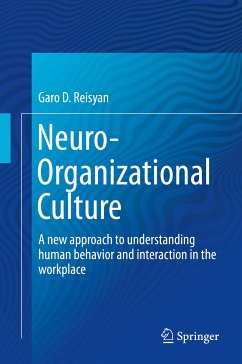
Organizational Psychology and Evidence-Based Management (eBook, PDF)
What Science Says About Practice
Redaktion: Neiva, Elaine Rabelo; Mendonça, Helenides; Torres, Cláudio Vaz
Versandkostenfrei!
Sofort per Download lieferbar
68,95 €
inkl. MwSt.
Weitere Ausgaben:

PAYBACK Punkte
34 °P sammeln!
Adopting an Evidence-Based Management (EBM) approach, this book provides the best evidence available on a wide range of topics from Industrial and Organizational Psychology to help managers base their decisions on scientific findings. Drawing on principles and methods first developed by Evidence-Based Medicine, EBM aims to promote the use of scientific knowledge in organizational and managerial decision making. Based on this idea, the book seeks to establish a dialogue between researchers and professionals of the Industrial and Organizational Psychology and Management fields, translating scien...
Adopting an Evidence-Based Management (EBM) approach, this book provides the best evidence available on a wide range of topics from Industrial and Organizational Psychology to help managers base their decisions on scientific findings. Drawing on principles and methods first developed by Evidence-Based Medicine, EBM aims to promote the use of scientific knowledge in organizational and managerial decision making. Based on this idea, the book seeks to establish a dialogue between researchers and professionals of the Industrial and Organizational Psychology and Management fields, translating scientific knowledge into useful resources that can be used to inform practitioner's decisions and interventions in topics such as:
- Creativity in organizations
- Optimism and hope
- Engagement at work
- Life and career planning
- Entrepreneurship
- Innovation in organizations
- Cultural diversity and inclusion in organizations
- Social networks
- Ageing at organizational context
- Work/life balance
- Positive rule breaking
- Expatriation
- Time pressure, Pacing styles and polychronicity
Dieser Download kann aus rechtlichen Gründen nur mit Rechnungsadresse in A, B, BG, CY, CZ, D, DK, EW, E, FIN, F, GR, HR, H, IRL, I, LT, L, LR, M, NL, PL, P, R, S, SLO, SK ausgeliefert werden.












